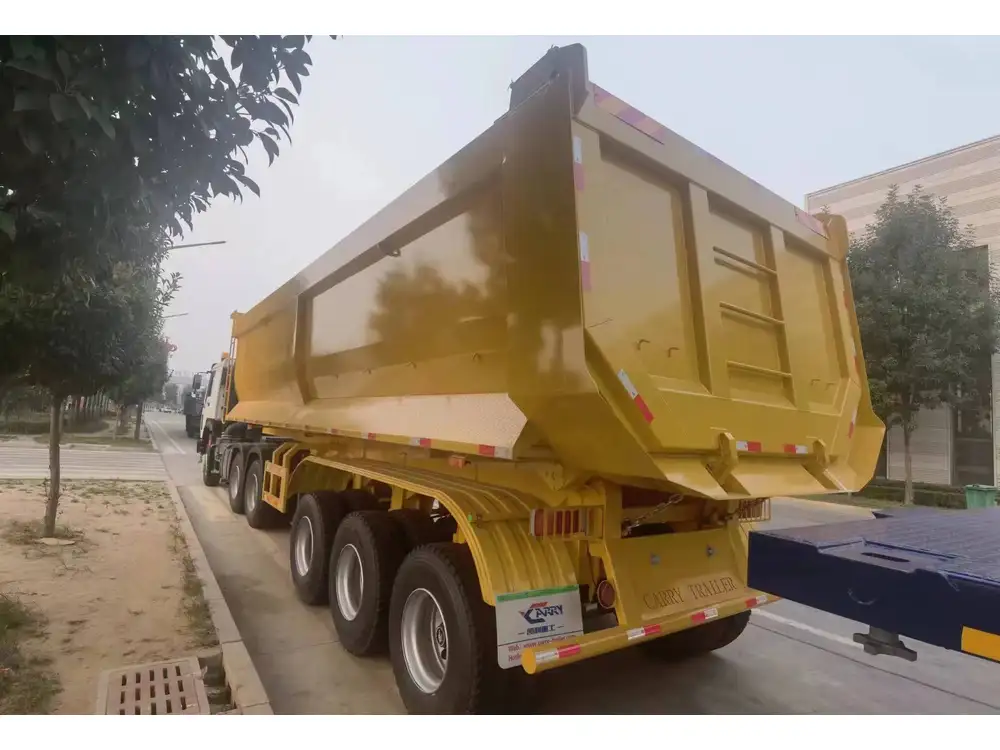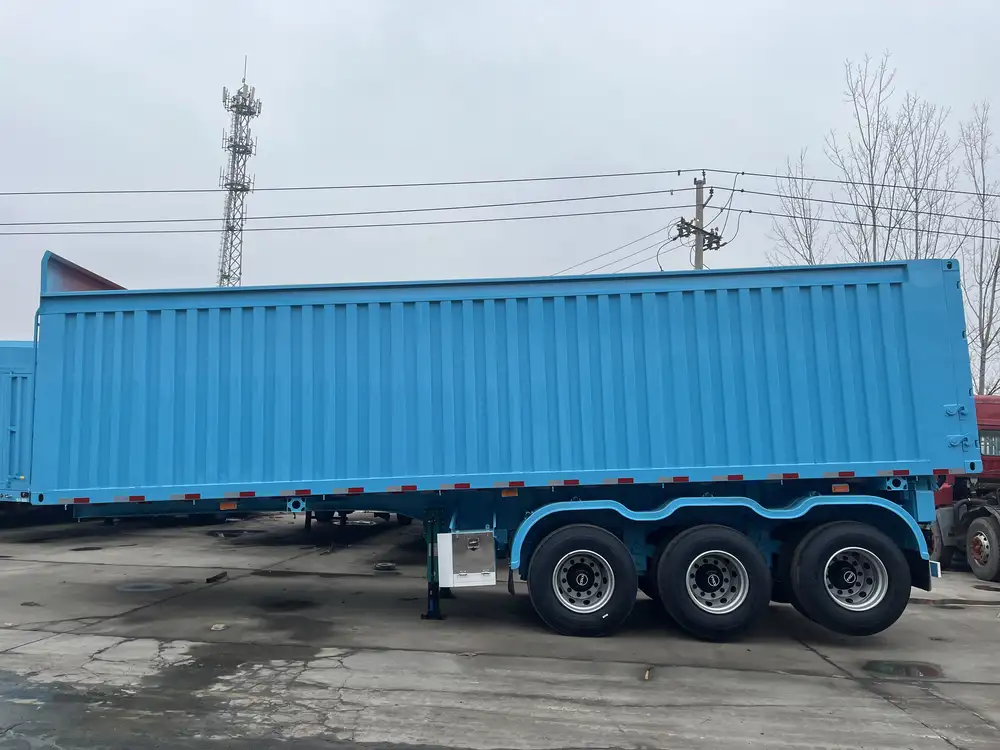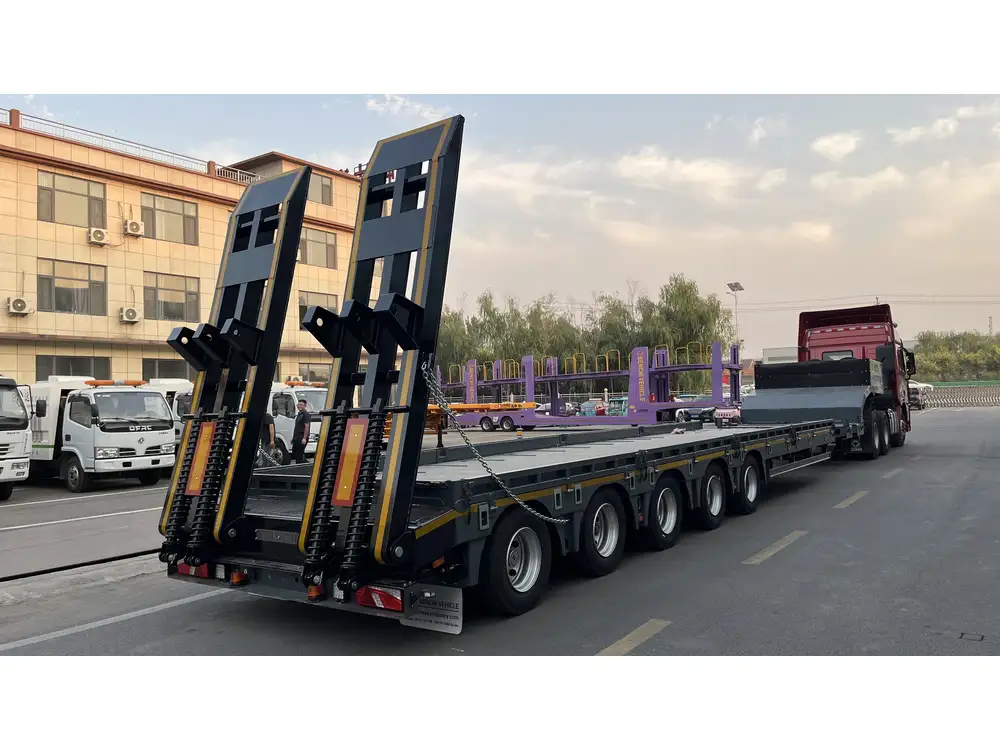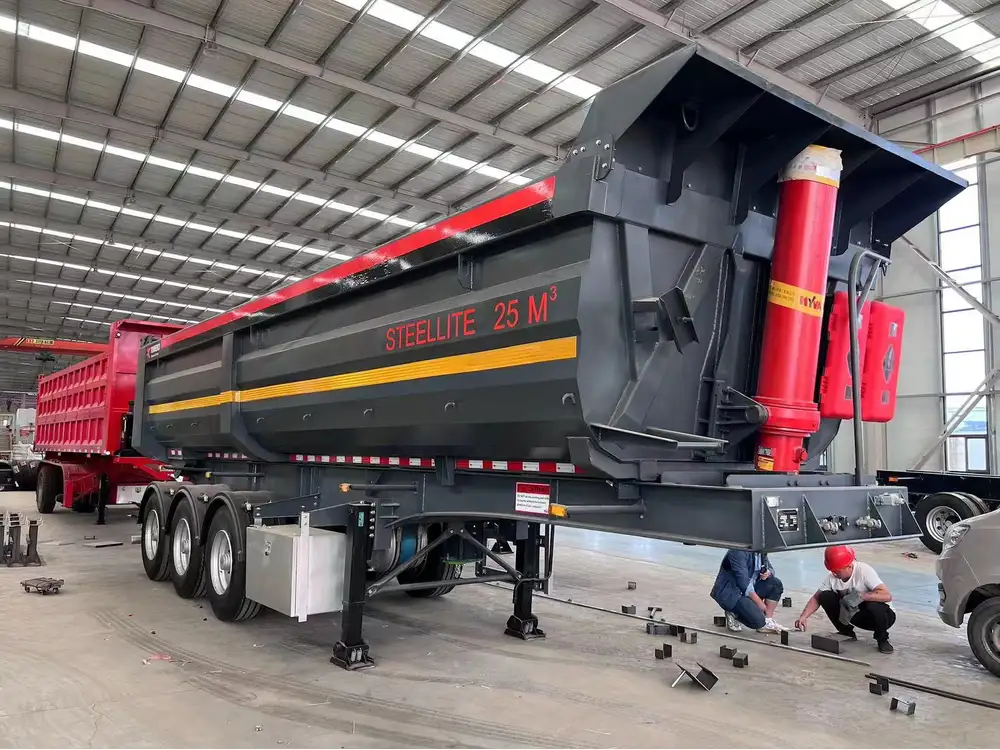In the world of logistics and freight transportation, versatility and efficiency are paramount. With a growing demand for reliable transport solutions, the 48-foot flatbed Conestoga trailer has emerged as a noteworthy option, providing an innovative design that aligns well with modern supply chain needs. This article delves into the intricacies of the 48-foot flatbed Conestoga trailer, highlighting its features, benefits, and ideal applications. Whether you’re a fleet manager, a logistics coordinator, or a business owner looking for a dependable transport solution, understanding this trailer’s design and functionality will help you make informed decisions.
What is a 48-Foot Flatbed Conestoga Trailer?
A 48-foot flatbed Conestoga trailer is a specialized type of flatbed trailer distinguished by its unique tarping system. Weighing typically between 7,000 and 10,000 pounds, these trailers measure 48 feet in length and are designed to accommodate a variety of cargo types. Unlike traditional flatbed trailers, the Conestoga features a rolling tarp system that can be easily adjusted, providing enhanced protection against the elements while allowing for quick loading and unloading.
Specifications at a Glance
| Specification | Value |
|---|---|
| Length | 48 feet |
| Width | 102 inches (8.5 ft) |
| Weight Capacity | Up to 48,000 lbs |
| Trailer Weight | 7,000 – 10,000 lbs |
| Side Height | 6 to 8 feet |
| Tarp Material | Heavy-duty vinyl |

Key Features of the 48-Foot Flatbed Conestoga Trailer
1. Rolling Tarp System
At the core of the Conestoga design is its rolling tarp system. This feature provides several advantages:
- Weather Protection: The tarp protects cargo from rain, snow, and UV exposure, which is crucial for sensitive materials.
- Accessibility: The design allows for full access to the loading area without fully disassembling the tarp, streamlining the loading and unloading processes.
- Ease of Use: The tarping mechanism can be operated quickly, reducing downtime during transport.
2. Enhanced Load Security
The 48-foot flatbed Conestoga trailer boasts integrated tie-down points, ensuring that loads remain secure during transit. This feature is particularly beneficial for transporting construction materials, machinery, and other heavy items that might shift during movement.

3. Versatility in Cargo Types
This trailer is remarkably versatile, accommodating a wide range of cargo types, including:
- Building Materials: Lumber, steel, and insulation.
- Heavy Machinery: Forklifts, backhoes, and other equipment.
- Furniture: Home furnishings that require protection from the elements.
4. Compliance and Regulations
Conestoga trailers are designed to meet the stringent regulations set forth by the Department of Transportation (DOT). This compliance ensures not only safety but also legal consistency in interstate transport.
Benefits of Choosing a 48-Foot Flatbed Conestoga Trailer

1. Time Efficiency
The ability to quickly cover and uncover loads significantly reduces loading and unloading time. This efficiency leads to faster turnaround on deliveries, which translates to enhanced profitability.
2. Cost-Effectiveness
While the initial investment in a Conestoga trailer might be higher than a traditional flatbed, the long-term savings in labor and tarping materials can offset those costs. Additionally, the trailer’s ability to protect cargo minimizes the risk of damage, leading to reduced liability and replacement costs.
3. Increased Cargo Capacity
The 48-foot length provides ample space, accommodating larger shipments while still remaining manageable for hauling through urban areas. The flatbed design also allows for stacking of cargo, maximizing load efficiency.

4. Enhanced Driver Safety
The reduced need for manual tarping means that drivers are exposed to fewer hazards on the loading dock or while on the road. With a rolling tarp system, drivers can secure and protect their loads without climbing onto the trailer, improving overall safety.
Use Cases for the 48-Foot Flatbed Conestoga Trailer
1. Construction Industry
The construction sector frequently relies on the 48-foot flatbed Conestoga trailer for transporting heavy materials, such as steel beams, concrete panels, and lumber. Its versatility allows for different configurations depending on the type of cargo.

2. Agricultural Transport
For agricultural businesses, this trailer is an ideal choice for transporting equipment, supplies, and harvested goods. The ability to protect perishable items from weather exposure makes it invaluable for farmers.
3. Freight and Logistics
In the freight industry, where timing and security are crucial, the Conestoga trailer stands out. It facilitates quick loading, ensures cargo safety, and provides high adaptability to different freight types.
4. Moving and Delivery Services
Companies specializing in moving heavy furniture or appliances benefit from the Conestoga’s protective tarping system. It prevents damage during transit and provides peace of mind to customers.

Comparison: Conestoga Trailers vs. Traditional Flatbeds
Choosing between a Conestoga trailer and a traditional flatbed trailer often depends on cargo type, transport environment, and operational needs.
| Feature | Conestoga Trailer | Traditional Flatbed Trailer |
|---|---|---|
| Tarping System | Yes (rolling tarp) | No |
| Loading Accessibility | High (easy access without tarp removal) | Moderate (sometimes requires full tarping) |
| Weather Protection | Excellent | None (unless covered separately) |
| Cargo Versatility | High | Moderate |
| Loading Efficiency | High (quick tarp operations) | Moderate (can be slower to secure) |
Addressing Common Concerns about 48-Foot Flatbed Conestoga Trailers
1. Are Conestoga Trailers Durable?
Yes, the materials used in Constructing Conestoga trailers are designed to withstand rigorous conditions, including harsh weather conditions, heavy loads, and rough road surfaces. The heavy-duty vinyl used for the tarp is treated to resist UV damage and tearing.

2. What Maintenance is Required?
Regular maintenance is crucial for longevity. This includes:
- Inspecting the tarp for signs of wear and tear.
- Checking tie-down points for wear.
- Ensuring that the trailer’s frame and tires are in good condition.
3. Can I customize a Conestoga Trailer?
Many manufacturers offer customization options, such as specialized tarp materials, additional tie-down points, and tailored dimensions to suit specific cargo requirements.
Conclusion: Making the Right Choice for Your Business
The 48-foot flatbed Conestoga trailer represents a perfect fusion of versatility, efficiency, and safety. Whether you’re transporting construction materials, agricultural products, or heavy machinery, this trailer provides the necessary features to meet your logistical needs. Its advanced design facilitates increased productivity, enhances cargo security, and protects shipments from the elements.
Investing in a Conestoga trailer not only elevates your transport capabilities but also positions your business for success in a competitive market. Understanding its advantages and applications will empower you with the knowledge to make the best choices for your fleet.

Frequently Asked Questions
What is the weight capacity of a 48-foot flatbed Conestoga trailer? The weight capacity typically reaches up to 48,000 lbs, depending on the trailer’s specific configuration.
Is a Conestoga trailer suitable for all cargo types? Yes, the Conestoga trailer is versatile enough to handle a wide range of cargo types, making it suitable for various industries, including construction, agriculture, and freight services.
How does the rolling tarp system work? The rolling tarp system allows for quick and easy access to the cargo area without the need to remove or disassemble the tarp completely. Users can roll it back to uncover the load swiftly.
This comprehensive guide serves as a resource for those looking into the 48-foot flatbed Conestoga trailer—its specifications, advantages, and practical applications in the real world. Understanding these components helps you navigate the logistics landscape with confidence, ensuring your operations remain efficient and productive.



